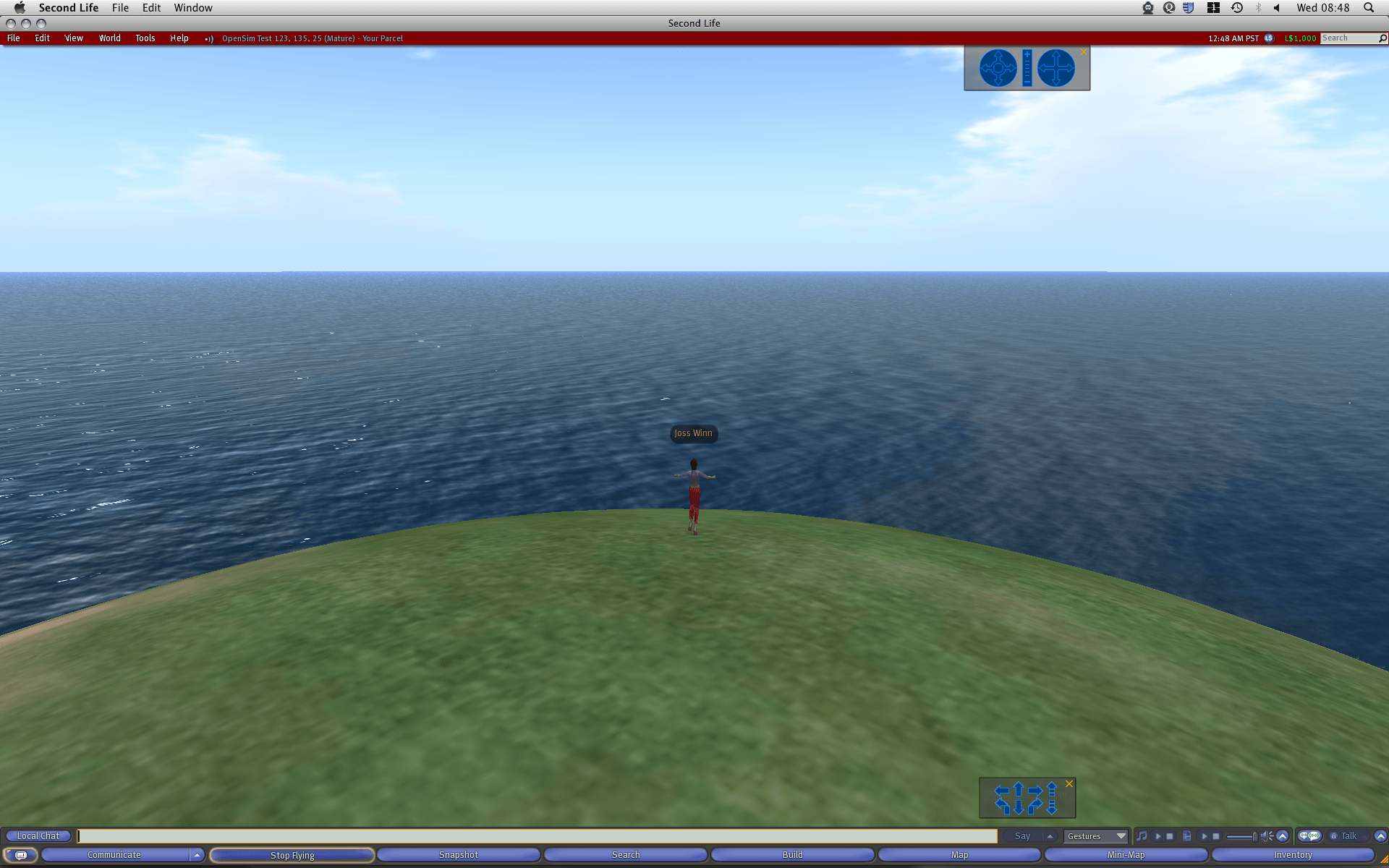Late last year, I worked with colleagues to propose a way forward for implementing the university’s ‘Digital Education Plan‘. Here’s the document that went through university committees and is currently being put into action. A significant investment is being made at Lincoln to support and develop teaching and learning, teacher education and student engagement, under which the recommendations below will be resourced. I continue to have input into all four areas of work recommended. I am leading on the proposed Masters research degree, based on the idea of ‘the university as a hackerspace’, which I have written about previously.
Implementation of the Digital Education Plan
Introduction
This paper sets out four areas of work to enhance and support digital education at Lincoln. These activities are derived from the university’s Digital Education Plan (May 2013), a report following an HEA/Leadership Foundation consultancy (July 2013) and ongoing discussions by the Digital Education Strategy Core group. The implementation of a digital education plan at Lincoln is grounded in two institution-wide projects undertaken over the last five years: Student as Producer and Learning Landscapes. Both of these major projects, as well as other related initiatives, inform the approach and objectives for implementing the Digital Education Plan. In summary, the four areas of work are:
- A cross-university digital education group
- Incentives and recognition
- A multidisciplinary Masters research programme
- A framework for re-engineering space and time
A cross-university digital education group
Digital education at Lincoln requires on-going co-ordination and support. A cross university group focusing on innovation and support for technology for education should be established within CERD, with formal membership from across the Colleges and key service departments. This group will build on knowledge gained and lessons learned from the LNCD group.[1]
As well as some existing staff from CERD, the group should have three newly established ‘Digital Education Developer’ posts who are attached to each college. Staff from ICT, Estates and the Library should also be formally attached to the group. These core staff would engage with colleagues and students from across the university. They would encourage and support wider efforts across Colleges to undertake applied research and development into digital education. This ‘hub and spoke’ model of co-ordinating support, innovation, research and development across institutions is widespread in the sector.[2]
A core principle of the group will be that students and staff have much to learn from each other and that students as producers can be agents of change in the use of technology for education.
Incentives and Recognition
Next, we propose to focus on developing ‘digital literacy’ and ‘digital scholarship’ across the staff and student population of the university. These are broad, inclusive terms that encompasses a range of skills, experiences and critical approaches required for teaching, learning and research, effectively providing the groundwork for any successful implementation of the digital education plan. Digital education at Lincoln should engender an environment whereby students and staff are encouraged and supported in being not just consumers of technology but rather productive, critical, digitally literate social individuals. In this view, technology is inclusive and understated, advocated by the institution primarily to develop the individual’s critical, social understanding and abilities which they apply to their learning and in this way technology does not become an end in itself. In the development of critical, digital literacy, we can raise awareness of the nature and effects of inequitable digital practices and in doing so, encourage socially responsible individuals who are then able to challenge exclusive practices and ensure inclusive ways of living in society.
To help achieve this, we will develop optional, accredited modules for both staff and students:
- Continuation of the existing 30 credit module, Teaching and Learning in the Digital Age (TELEDA). This has been developed for staff by Sue Watling (CERD) and was successfully piloted in 2012-13. Its primary focus is how online communication and collaborative group work can enable critical thinking and reflection.
- An accredited module for staff and students will be developed which is formally aligned with the new ‘Mozilla Web Literacy Standard’[3] and other appropriate models.[4] This will be made available to any student from September 2014 as part of the Lincoln Award and available to staff as part of CPD.
- A 30 credit module in digital scholarship will be developed for staff and post-graduate students. Taken in addition to the TELEDA module, this would lead to a Post-Graduate Certificate for staff. It will also be available as an optional module for the MA in Education (in development).
In addition to accredited taught modules, the proposed digital education group will offer support and incentives to staff and students who wish to engage with digital education at the university, through annual Internships, research grants/bursaries and internal and external applications for funding. Through our experience of the Fund for Educational Development (FED) and Undergraduate Research Opportunity Scheme (UROS) funds, we know this is an effective method of engaging staff and students in research and development that produces tangible research outcomes and will help further the critical development of digital education at Lincoln.
A multi-disciplinary Masters research programme
In addition to the digital education group, we propose a new academic programme which will act as a focal point for teaching, research and development of new technologies that maintain Lincoln at the cutting edge of digital education and technology culture. Influenced by the rapidly emerging ‘hackerspaces’[5], the programme will seek to learn from what we see happening in hacker culture: new reputational models, ‘fablabs’ and ‘hacklabs’, commons-based peer-production, and new methods of innovation funding. This research-based, postgraduate programme should be cross-disciplinary and always experimental in its form and content; a sandpit for innovation, engaging academics and students in the sciences, arts, media and humanities to think deeply about the way technology is used for research, teaching and learning and the social good.
This cross-disciplinary research programme will allow students with different disciplinary backgrounds and interests to spend their degree in a physical university space, working together on ideas of their own under the guidance of experienced staff. To bootstrap the Programme, the first intake of 10 students should be recruited with a wide range of artistic, technical and scientific experience and they would pay no tuition fees. In following years, tuition fees would be payable but waivable depending on the accomplishments and impact of the student’s work. Impact could be measured in a variety of ways: technical, commercial, societal and educational. Over time, successful alumni would help attract more students to the programme, developing a culture of hackers and successful startups attached to the research programme. To further attract and incentivise students, ‘angel funding’ should be available on a competitive basis for student projects which show further potential.[6]
The programme combines cross-disciplinary research and development, teaching, learning and enterprise, but it recognises that those processes are changing and that hackers and entrepreneurs are developing a model that is replacing these functions of the university: the opportunities for learning, collaboration, reputation building/accreditation and access to cheap hardware and software for prototyping ideas, can and are taking place outside universities, and so they should. However, university culture is still a place where the hacker ethic (respect for good ideas, meritocracy, autonomy, curiosity, fixing things, anti-technological determinism, peer review, perpetual learning, etc.) remains relevant and respected.
A framework for re-engineering space and time
Finally, we propose to develop a framework for staff and students to analyse and re-engineer the use of space and time at the University of Lincoln. To create this, we will undertake a comprehensive investigation into the form and content of a large, lecture-based module and its objectives and constraints. In doing so, we will provide staff and students with a toolkit for evaluating and re-designing the space-time of their own programmes through better use of teaching and learning time and the blended use of the physical and virtual space of the university. This guided evaluation would also be built into one or more of the above mentioned teacher education modules so that staff reflect on the way technology may change the way their modules are designed and delivered.
The virtual space – cyberspace – allows us to think critically and imaginatively about the idea and form of university we desire. This approach was central to the Learning Landscapes project, highlighting how critical pedagogy can be used as a design principle, a resource in the design and construction of a counter-space, providing critical tools with which we ‘reverse imagineer’ the university. The ‘edgelessness’[7] of cyberspace allows for ‘Utopian thinking’ through which the constraints of traditional hierarchies of research, teaching and learning become “manifest as entirely different spatial forms and temporal rhythms.”[8] Arguably, we’re already seeing this Utopian thinking in the forms of the Open Data, Open Access and Open Education movements.
Based on the recommendations of the original Learning Landscape project, we propose the following overarching objectives for digital education at Lincoln:
- Drive research into the effective design and development of digital education
- Provide support to teachers and students for Utopian thinking and experimentation on the web
- Include students as clients and collaborators in the design of university digital services
- Be academically credible. Digital education should not simply be a technical exercise removed from the academic rigour of the university
- Understand the relationship between space and time: it’s not just ‘cyberspace‘, but space-time
- Articulate the institution’s vision and mission as a connected, networked whole
- Create incentives. Recognise and reward innovation across all staff and students
- Create formal and informal management structures that support strategic experimentation and imagineering (e.g. ‘think tanks’, ‘sand pits’, ‘skunk works’)
- Avoid stereotyping. Bring people together from across subject areas and professions so as to avoid an ‘us and them’ attitude
- Intellectualise the issues. Generate debate on the nature of academic values and the role and purpose of higher education: the idea of digital education is synonymous with the idea of the university.
In essence, digital education points to a learning landscape that is designed to engender capable, confident and critical individuals engaged in research, teaching and learning, so that they are active producers of their own social world.
Recommendations
We ask that the Education Committee recommends the following:
- Urgent recruitment of three Digital Education Developer posts
- The development of two further modules of study relating to digital literacy and digital scholarship
- The development of a cross-disciplinary Masters level research programme
- Research and development into the re-engineering of lecture space-time
- On-going investment to support these initiatives.
[1] http://lncd.lincoln.ac.uk and https://joss.blogs.lincoln.ac.uk/2011/05/16/technology-for-education-a-new-group/
[2] Walker, Voce and Ahmed (2012) Survey of Technology Enhanced Learning for higher education in the UK, UCISA. p.91
[4] e.g. SCONUL Seven Pillars of Information Literacy (2012)
[6] The Y Combinator (http://ycombinator.com) model of angel funding is a good example of this already happening, where students and recent graduates receive a small amount of funding and lots of support, in return for just a very small share of their enterprise. JISC are also experimenting with this style of ‘angel’ funding in their Summer of Student Innovation programme. http://elevator.jisc.ac.uk
[8] Harvey, David (2000) Space of Hope, University of California Press, 237-8

